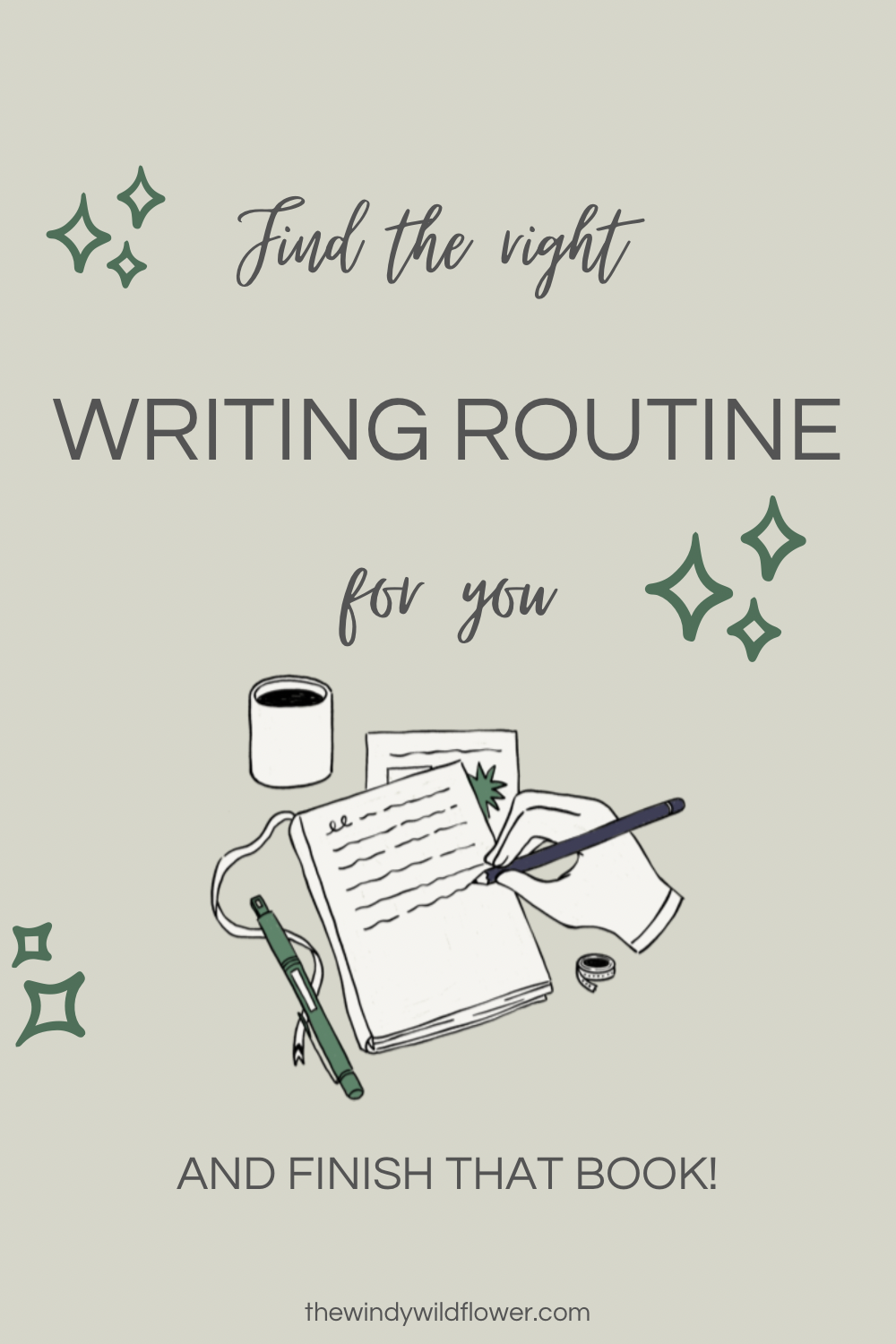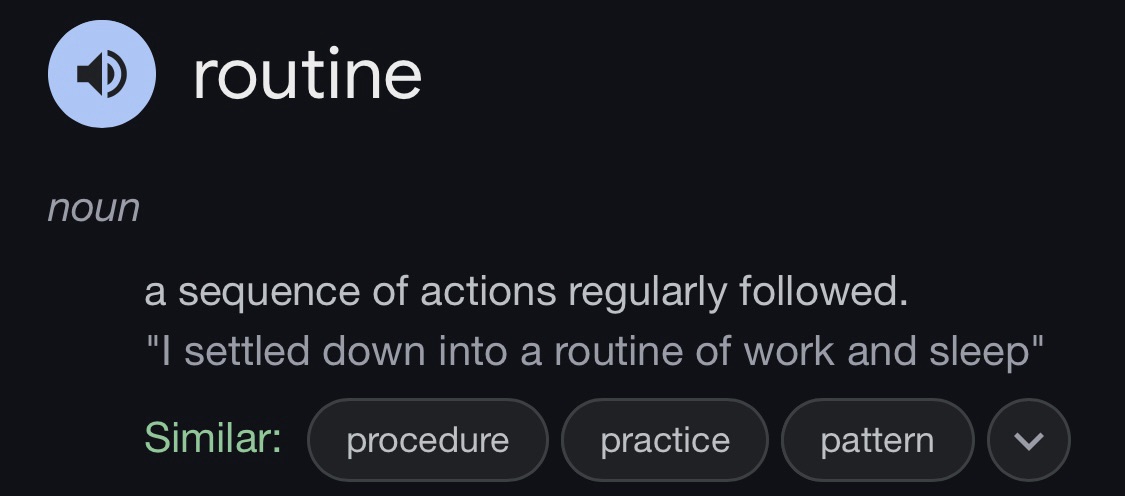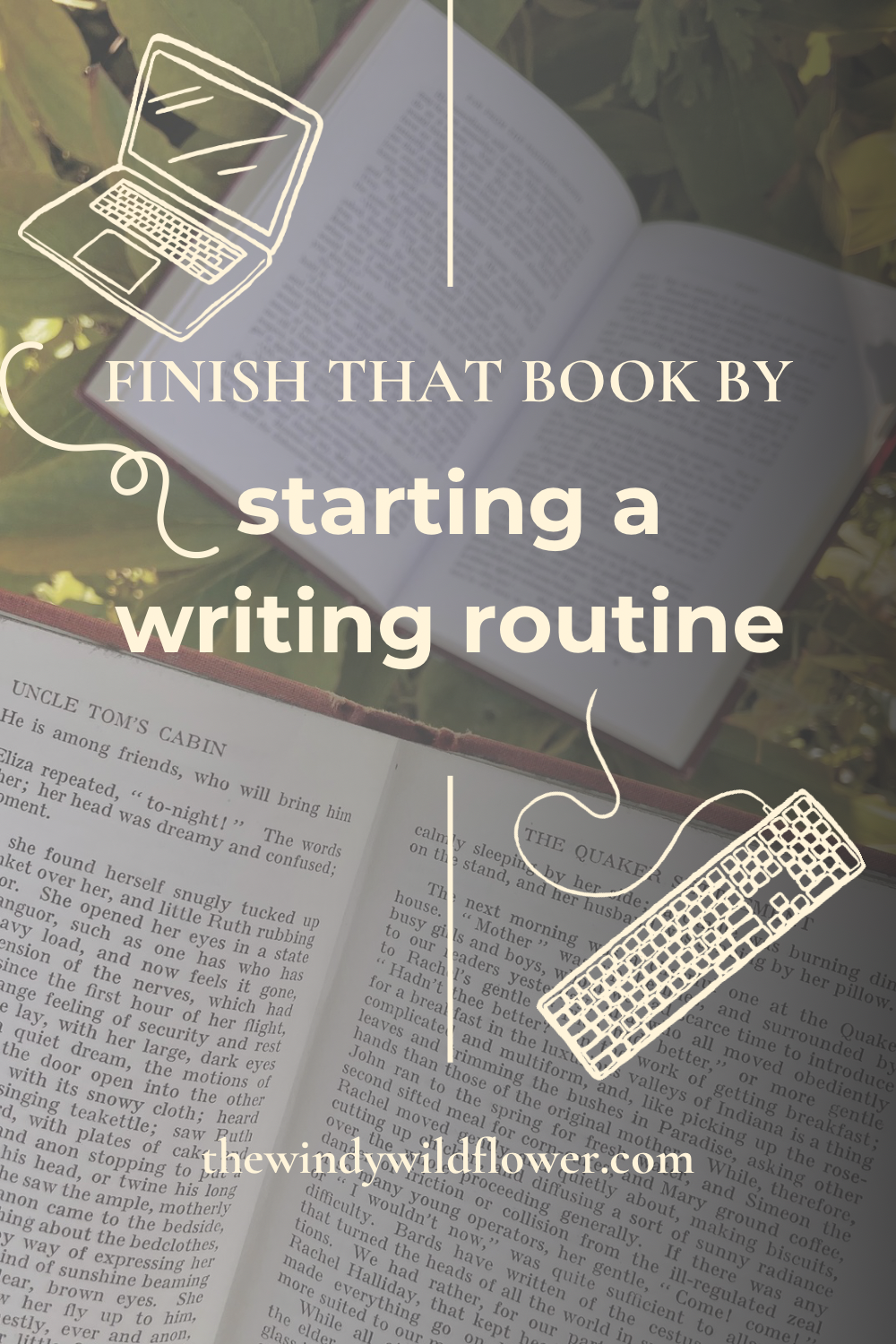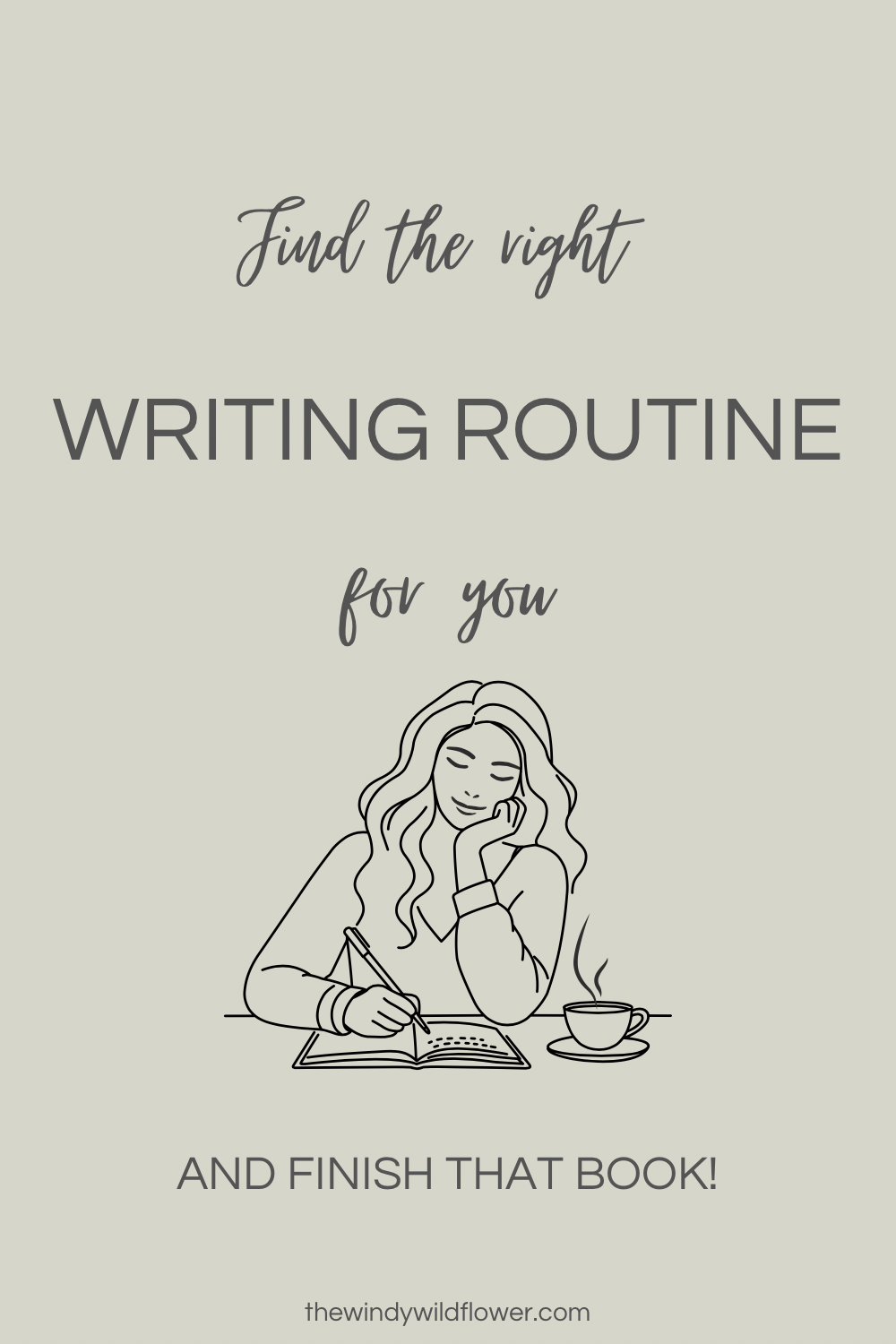Finish writing that book by starting a writing routine / writing advice
Whenever I don’t have a routine, my writing falls on the back burner, until I realize one day that I haven’t worked on a project for weeks, or even months. It can be hard to finish writing projects, that’s why I’m here today to encourage you to get into a writing routine and finish the book of your dreams (even if it doesn’t feel like the dream right now).
With almost every book I write, I find that around the middle mark, or sometimes a bit before, I loose all motivation for the story, and writing suddenly doesn’t feel very important. The passion for my characters seems to just slip away, and I find myself thinking of other projects, or of anything but writing.
It’s times like these we need to delve deep within and find that determination to complete what we started. Although half books can teach us something, I always find that going through the process of writing a complete first draft teaches me so much more. It’s only when I look back over the whole story that I see the full picture. I see how I can improve as a writer. A painter would have a harder time analyzing their work if only half the flower were there.
It’s times like these we need to delve deep within and find that determination to complete what we started.

Finishing things in life is important. Doing hard things is important. Finishing your book is important.
So, why routine? Why is it important? Why does it play a part in completing your writing project?
Routine as a word is defined as a sequence of actions we do regularly.

So a writing routine, is a sequence of writing actions that we do regularly. That sounds like a book getting finished to me.
I think the reason it’s important is because it gives us something to commit to – something solid and practical, not elusive or vague. Instead of “committing to my book”, we could “commit to write for thirty minutes each day”. The latter option is a lot more actual and less slippery when it comes to things not happening.

Finally, the way it plays a part in completing our books is that it holds us to writing and gives us something to relax into as we create. It motivates us and relaxes us. We don’t need to worry about when or where, or for how long we’ll write because it’s already been decided by our past selves.
it gives us something to commit to – something solid and practical, not elusive or vague.
So how can you create a routine to stick to?
Routines can be as rigid or as free flow as you’d like. They can be a specific schedule or simply a time slot that you fill on the day.
Some examples (routines of my own):
- I write before work on Thursdays and Fridays for about an hour and a half because I start work later on those days.
- I used to get up and write from 6AM-7AM, or 5AM-7AM when I lived at home as was finishing school.
- I write these blog posts after work, preferably on Tuesdays and Thursdays but sometimes other times.
Routines change over time as you can see from above. I write less currently than I used to, but that’s okay for this season, that’s what I can manage. What can you manage in this season?
How to create your own routine:
Think about time. When are you going to fit writing into your life? Get creative and see how this could work for you. Could be shorter snippets or one long session. If you feel like there’s no time that suits, run through each hour of your day to see what’s actually filling your day. You’ll likely find little free spots. If not, something’s gotta give. Is it writing or Netflix? Writing or cooking? Prayerfully weigh up your day’s activities. Personally, I have sacrificed writing time because I value time with my husband over writing. What do you value? Check in with Jesus to make sure priorities are straight.
What do you value?
As well as thinking when to write daily, think weekly. I know, for me, I’m not writing every day currently, but just two or three times a week a week. Go with what you can commit to.

Now, for some when suggestions.
- Early mornings before your family is up (utter bliss to me)
- Evenings when things have quieted down
- On your lunch break
- Mid morning after the kids are at school
- Late night writing sesh while everyone sleeps (peace and quiet here we come!)
Next, consider where you’re going to write. This could change depending on day, but generally, have a plan on where so you can sit down and get stuck in without having to set up an office in writing time.
- On your bed with cozy blankets
- At a desk in your room with the window open
- At the kitchen table with some snacks nearby
- At a local coffee shop
- On the bus, train, or plane
- At a park
- In your garden
- On the floor on a comfy rug
- On the deck in sunshine
- At a library
- At school
- In the car (not if you’re the driver of course!)
- On the couch with ambient music playing on tv, maybe a fire crackling

Finally, how long will you write for? Does your creativity and brain work better with shorter time slots, or multiple hours at a time? This ties in with when you write, because either longer sessions but fewer, or more shorter sessions could work, depending on how life is and who you are. You could still write just as many words, or for as long even if it’s less individual sessions.
- (I don’t think this needs a list, and you can choose anything, from half an hour to five or more hours, it’s totally up to you.)
Once you have created your routine, decide to commit, and make it count. Even if you don’t feel like writing, write anyway. Words won’t write themselves, and your story could change the world.
I find that treating my writing as a third (or is it forth haha) job makes me take it more seriously. Also reminding myself of my dream to publish a novel one day, and how I need to show up for myself if those dreams are going to come true.
Your dreams can come true. This book does matter. This routine could save your books life.
